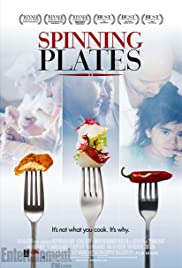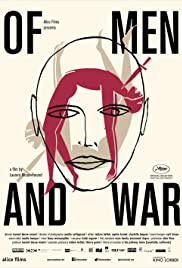
In the National Geographic Channel special, “George W. Bush: The 9-11 Interview,” the former President talks about the chaotic moments after the attacks and the reasoning behind decisions he made that day. Bush reflects on being told about the attacks while visiting schoolchildren in Florida and the difficulty in getting accurate information in what he calls “the fog of war.” He also talks about returning to the White House to address Americans in the hours after the terrorist attacks. Fearing a possible psychological boost for al-Qaeda, Bush said he, quote, “damn sure wasn’t going to give it from a bunker in Nebraska.” The former President recalls the emotional visit to Ground Zero just three days after the World Trade Center Towers were destroyed. He describes “a palpable bloodlust” among workers in the ruins who were encouraging him to retaliate against those behind the attacks.
You May Also Like

An Accidental Life is a deeply personal and vulnerable portrait of Quinn Brett, an ambitious, record-setting climber who strives to make meaning out of tragedy in the years following a near-fatal rock climbing accident on El Capitan that left her paralyzed.

With the black man’s numbers dwindling and his habitat encroached upon (we mean you, Jeremy Lin), superstar comic DL Hughley is determined to get federal protection for his species in this boundary-busting mockumentary — released wild and uncensored.

Follow KROW’s 3-year transition from teen ‘female’ model to becoming his true authentic self, not just as a transgender male, but also becoming an androgynous male model.

A young Egyptian filmmaker recounts his interaction with a group of plainclothes policemen while grappling with issues of guilt and morality.

With more than 50 million Latinos now living in the United States, Latinos are taking their seat at the table as the new American power brokers in the world of entertainment, business, politics and the arts. As Latinos’ influence in American society has soared, they have entered mainstream American culture, and the proof is in the music. Executive produced by legendary music mogul Tommy Mottola, THE LATIN EXPLOSION: A NEW AMERICA features a dazzling array of artists at the center of Latino cultural power and influence, including Marc Anthony, Emilio Estefan Jr., Gloria Estefan, José Feliciano, Eva Longoria, George Lopez, Jennifer Lopez, Los Lobos, Cheech Marin, Ricky Martin, Rita Moreno, Pitbull, Romeo Santos, Shakira, Thalía and Sofía Vergara. Narrated by John Leguizamo.

The story of Tom Hope and Rachel O’Mahony, cancer survivors who work alongside researchers at CÚRAM and POI, to help improve the lives of others living with the disease.

Spinning Plates is a documentary about three extraordinary restaurants and the incredible people who make them what they are. A cutting-edge restaurant named the seventh-best in the world whose chef must battle a life-threatening obstacle to pursue his passion. A 150-year-old family restaurant still standing only because of the unbreakable bond with its community. A fledgling Mexican restaurant whose owners are risking everything just to survive and provide for their young daughter. Their unforgettable stories of family, legacy, passion and survival come together to reveal how meaningful food can be, and the power it has to connect us to one another.

A documentary about the life of Pope John Paul II

Recorded live at The Great American Music Hall in their hometown of San Francisco, this is a deep cuts collection of rarely and never performed songs. Featuring interviews about each track from the band members.

The world’s leading Egyptologists are on a quest to uncover the secrets of Howard Carter’s history-making discovery of Tutankhamun’s tomb on the 100th anniversary of its discovery. Now, as the treasures of Tut are being moved from the Cairo Museum to the brand new Grand Egyptian Museum at the foot of the pyramids, Zahi and others can examine them up close with the latest technology like never before. The result rewrites what we thought we knew about the Boy King.

Since 2007, dozens of young people have been found hanged in Bridgend, a town in southern Wales. Many of them knew one another-they were friends, neighbors, and family. The striking similarities between their deaths have confounded authorities and struck fear into the hearts of parents. Headlines splashed across the UK earned Bridgend its infamous nickname: “”Death Town.”

Filmed over five years, this documentary charts the progress of several veterans dealing with post-traumatic stress disorder at a California clinic.